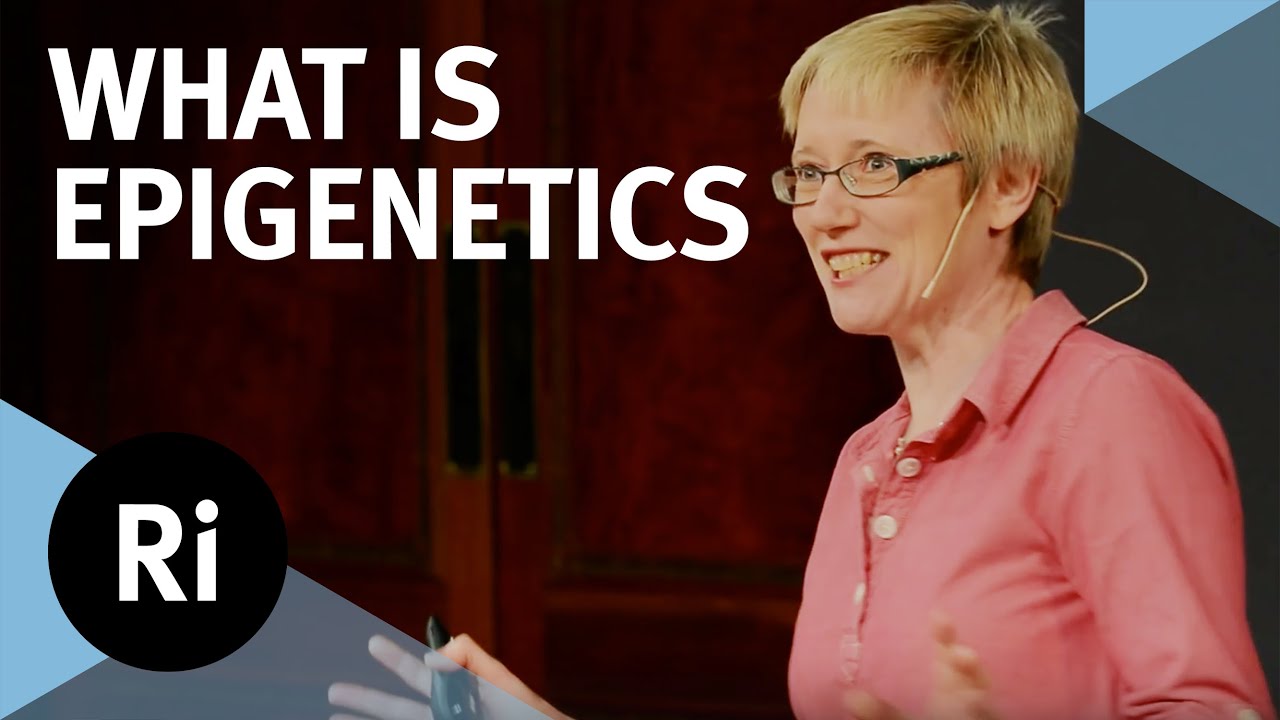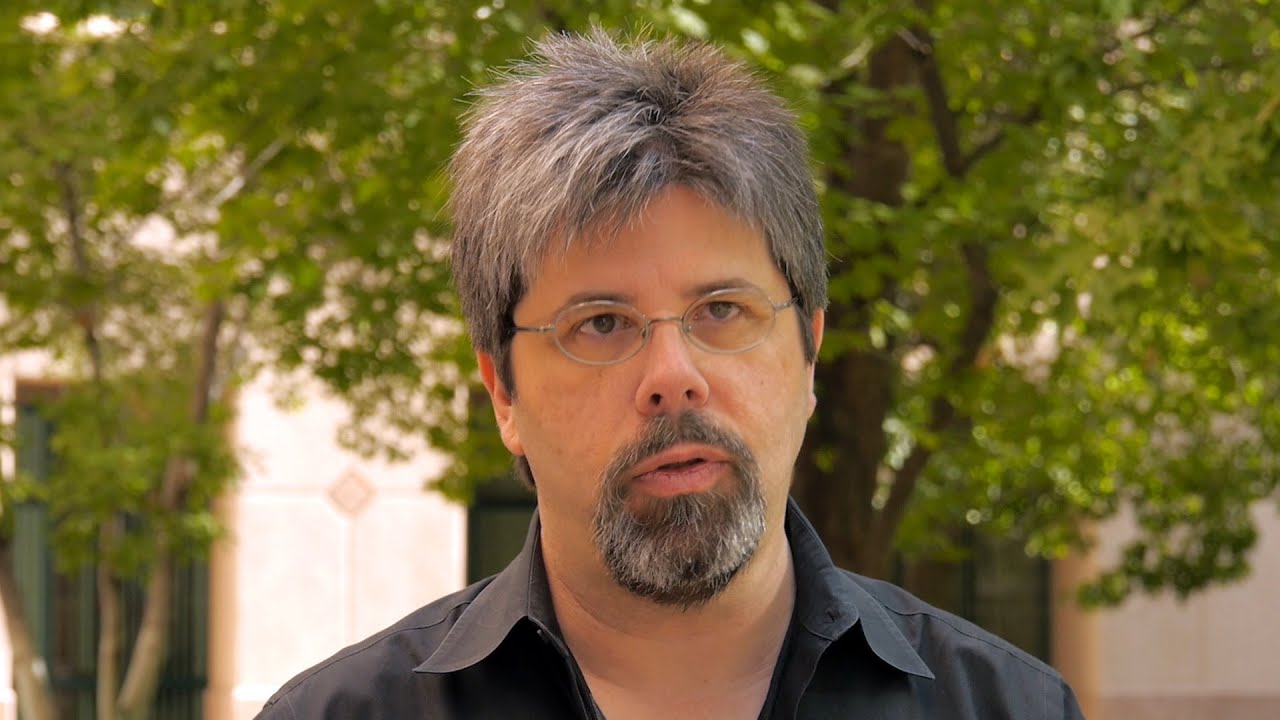The Royal Institution
Why your DNA is not your destiny. Molecular biologist Nessa Carey presents an introduction to epigenetics and explains how it shapes life.
Subscribe for regular science videos: http://bit.ly/RiSubscRibe
DNA is a vitally important starting point for life, but it’s how it’s used by cells and organisms that is really important. Epigenetics is a rapidly moving field that has transformed our understanding of how one set of genes can create the masterpiece that is each of us. It’s also leading scientists into unexpected and exciting areas such as new ways to treat disease, understand drug addiction or unravel the lifelong consequences of early childhood trauma.
Nessa Carey is a geneticist and author of The Epigenetics Revolution. She has a degree in Immunology, PhD in Virology, was a post-doctoral researcher in Human Genetics, and a senior lecturer at Imperial College London in Molecular Biology. She’s also spent 10 years in the biotechnology industry and now works in the pharmaceutical sector.
Subscribe for regular science videos: http://bit.ly/RiSubscRibe
The Ri is on Twitter: http://twitter.com/ri_science
and Facebook: http://www.facebook.com/royalinstitution
and Tumblr: http://ri-science.tumblr.com/
Our editorial policy: http://www.rigb.org/home/editorial-policy
Subscribe for the latest science videos: http://bit.ly/RiNewsletter
Source



It's a great lecture…… but crocodile's did not descend from dinosaurs. I wouldn't nickpick if they weren't a biologist lol
Excellent.
I am not much of an animal lover but I began to feel more and more uncomfortable at the descriptions of the animal experiments.
Also when she describes epigenetic modifications I thought she committed the "Time Machine" error in that she described it rather than explained.
Nevertheless a superb piece of education for me by a brilliant teacher!
Well thats alot of old people, nice story tho
I'm here after reading her book "The Epigenetics Revolution" to learn about possible updates in the field since it came out a few years ago. I would highly suggest the book to anyone as I had no background knowledge other than high school Biology and yet every chapter would blow me away.
Finally a female speaker that's a brilliant speaker.
So now each time, I'll come across histones and nucleosomes, I'll have marshmallow cravings.
Also, she manages to have zebra fish and zebra finches in the same slide. Finally Crocodilians don't descend from dinosaurs. They have a common ancestor : archosaurs.
❤️❤️❤️❤️
Mary Poppins is awesome at science!!
You make it so easy to absorb! You're an amazing professor! Thank you!
In mammals, you can use two females to reproduce. The only thing is that offsprings will always be female.
Why does the same code produce different results? Because of different inputs!
Yoga has been speaking about this fornthe longest time. Here is western science, appropriating from eastern science and not really bothering to give them credit. Why? Because it's all voodoo as some sadhus in a hole can't possibly be correct.
Dharma has been on about this for over 10 000 years.
I never understood this: If you block a gene from being expressed, what gene is expressed in it's place? Wouldn't it be a wrong one, for example heart cell instead of skin cell? Is there an alternative healthier gene? It can't be nothing. If i have, let's say, a mutated finger and i block that gene off, what would be in it's place? I think is absurd that there would be no finger.
crank up the volume please!
The female mouse was not invested in her offspring when she was made aware the father was inferior. The lack of investment was a form of abortion that does not completely abort but chemically does affect outcome. You see this behavior in human parenting.
5:00, 'crocodiles, descendants of the dinosaurs', are you sure??
but sex is not gender.. 🙁
SI ES POSIBLE LO PUEDAN ENVIAR EN ESPAÑOL
Thank you for the nice explanation, but how can you expect these genetic and epigenetic changes to occur all by chance without a creator, who innovated all these marvelous adaptive epigenetics!!!!!
somebody plz tell me, if there is 3 billion base pair or 3 billion Nucleotides in a DNA?
and does this 3 billion reside in a single chromosome or all the chromosomes together in a cell ? I m confused
Why the more educated ones are the most boring and missing the point? Why oh, why? Verbal diarrhea?
The cherry experiment is also interesting in relation to Rupert Sheldrakes research, it showed that not only did the offspring have fear, but other offspring of the same spices mice all around the world because of morphogenic fields. Ofc Ted talk banned that guy because its a new paradigm of understanding that does not fit some belief systems, just as smoking cigaretts needed 7000 studies to become known by the masses.
Extremely clarifying presentation, her book is also a gem of science communication…
What a brilliant lady!
So correct me if I(male) am having PTSD, OCD ( like traumatized male mouse in above mentioned ) get artificially inseminated into a healthy female the offspring produced would be devoid of PTSD, OCD ( traumatized condition). Is this applicable to humans has there been any research on it?